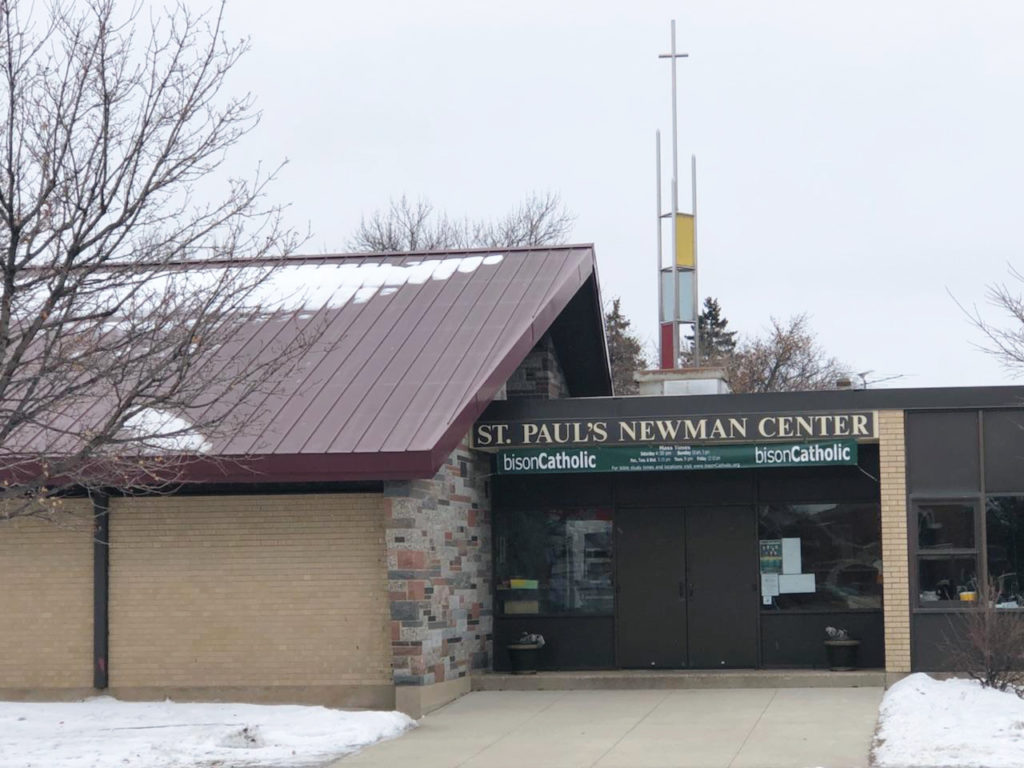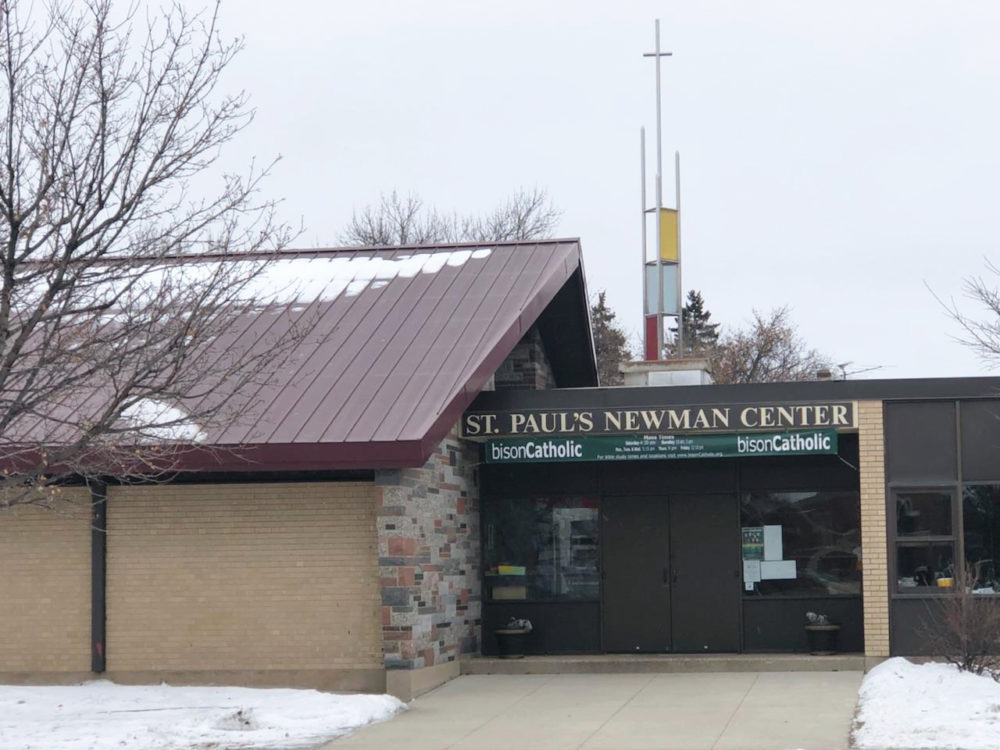Newman Center offering classes in bioethics

Catholic-specific courses held through NDSU.
Saint Paul’s Catholic Newman Center, home of the bisonCatholics, has introduced a new course this semester. The ethics course, advertised for students going into the health professions, is meant to teach bioethics through the lens of Catholic dogma. The source of the course material as well as the introduction of religious ethical teachings sets an unusual, and perhaps concerning, precedent for classes at NDSU.
The course is listed as “CHP 391: Fundamentals of Catholic Healthcare Ethics and Bioethics.” The term ‘Catholic bioethics’ and the idea of a course directed at health professionals seems like a bit of a paradox considering the church’s historical relationship with science and medicine. The full course takes place over three semesters and results in a certification from the National Catholic Bioethics Center (NCBC).
In an email sent out to bisonCatholics using NDSU logos, the course was described as follows: “The National Catholic Certification Program in Health Care Ethics has been developed at the request of many bishops and administrators of health care facilities to provide a credible and systematic formation so that dioceses, hospitals and ethics committees will have advisors better qualified to apply the Catholic moral tradition to challenging contemporary issues in healthcare.” For a three-semester course, which provides students with nine NDSU credits, the description is especially vague.
The class is taught by the Monsignor, Gregory Schlesselmann, using course modules developed by the NCBC; so, the question is: What is the National Catholic Bioethics Center? According to the website, the NCBC, “Conducts research, consultation, publishing and education to promote human dignity in health care and the life sciences, and derives its message directly from the teachings of the Catholic Church.” Again, this is a fairly vague description, but you can probably imagine what these messages from the Catholic Church might be.
The NCBC uses legislation and outreach to promote ‘Catholic values’ within medical professions. Their stances on abortion and assisted-suicide can be easily imagined: strongly opposed. However, it is their views on topics such as gender identity and same-sex marriage that cause surprise and concern.
NCBC share regular updates, one such update stated: “NCBC joins medical associations in advising the US Supreme Court that reinterpreting in federal law the term ‘sex’ as ‘gender’ creates a subjective and unworkable means of categorization.” This ideology leaks into their work trying to legislate for policies that would protect medical professionals who do not want to assist patients trying to get gender reassignment surgery or hormone therapy.
They elaborate on this by saying, “ We believe that the best therapies for gender dysphoria will seek to make patients comfortable in their own bodies, rather than take unnecessary medical risks to attempt the impossible and make their bodies reflect their feelings.” They are essentially saying that individuals who wish to go through gender reassignment surgery should instead receive psychological treatment to ‘accept’ their bodies.
Another disturbing take from NCBC has to do with the medical professional’s obligations to respect the marital status of same-sex couples. Their exact words on the topic were, “There is a fundamental difference between the marital relationship of one man and one woman, with the ensuing rights recognized for the well-being of children and society, and committed relationships between two persons of the same sex.”
With all of this information in mind, you may ask: Why should we care? Sure, it’s no secret how the Catholic church feels about abortion, same-sex marriage, gender identity and physician-assisted suicide. However, when a course promoting Catholic views on all these topics is being taught through NDSU, these feelings go beyond religious expression into the muddied waters of possible discrimination.
NDSU anti-discrimination policy specifically states that programs cannot discriminate on the basis of sexual orientation or gender identity; however, CHP 391 is being taught through an organization who is fighting for legislation that will discriminate on those bases specifically. The course seems to provide future medical professionals with legal tools to avoid treating certain patients. It’s difficult to see how this course work will not directly contradict NDSU’s own policies.
The real concern is how instituting religion-specific ethics courses, or any other courses directly in favor of a specific religion will affect the NDSU community. NDSU is at its most beautiful and progressive when multiple religions and diverse backgrounds are present. If courses are to be taught that support Catholic doctrine, where can we draw the line from stopping courses being taught which encourage other religious teachings, which propagandize certain political ideologies or that blatantly encourage the discrimination of identities held by NDSU students?
While I am not Catholic, I can say with absolute certainty that I would not want courses held at NDSU which only serve to encourage my personal beliefs. Individuals come to college to broaden their perspective and learn about disparate points of view. As of now, no rules may technically have been broken. However, the possibility that an individual may find themselves in the hands of an NDSU health professions graduate and not be served due to identity or spiritual belief should concern both the students and the administration. A precedent has been set and the resulting dangers could be substantial.
